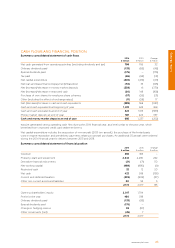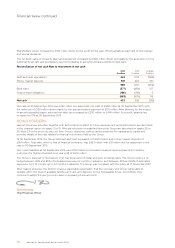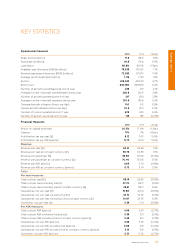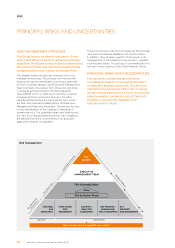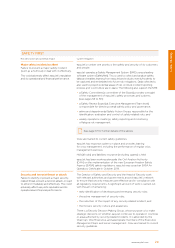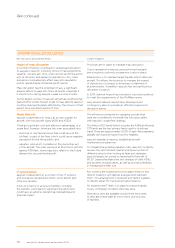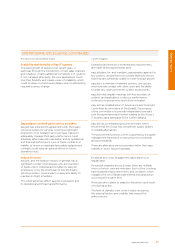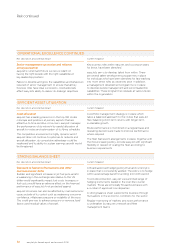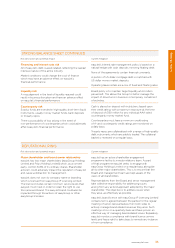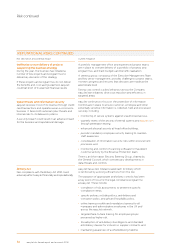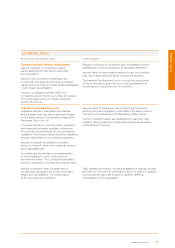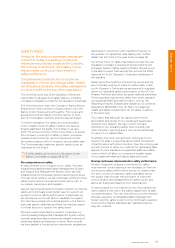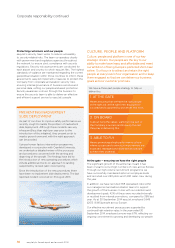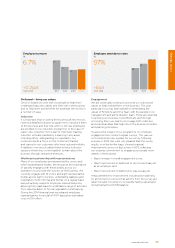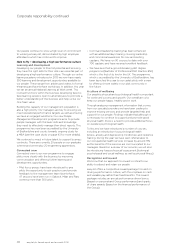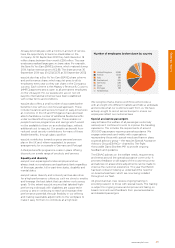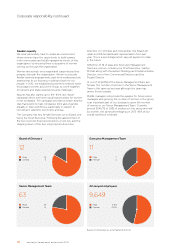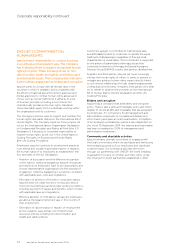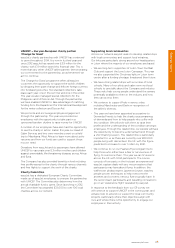EasyJet 2014 Annual Report Download - page 37
Download and view the complete annual report
Please find page 37 of the 2014 EasyJet annual report below. You can navigate through the pages in the report by either clicking on the pages listed below, or by using the keyword search tool below to find specific information within the annual report.
EXTERNAL RISKS
Risk description and potential impact Current mitigation
Competition and industry consolidation
easyJet operates in competitive market
places against both flag carriers and other
low-cost airlines.
easyJet’s key competitive advantages are
its network, cost base and efficient and robust
capital structure. Failure to retain these advantages
could impact its profitability.
Industry consolidation will also affect the
competitive environment in a number of markets.
This could cause a loss of market share and
erosion of revenue.
Regular monitoring of competitor and consolidation activity,
enabling key routes and positions to be readily defended.
easyJet seeks to have a rapid response to any such activity
that may impact easyJet’s ability to grow the business.
The Network Development Forum, a cross-functional panel
of senior executives, approves new routes and bases and
the allocation of assets around the network.
Legislative and regulatory risks
Legislative decisions, particularly at a national
and European level, can have a significant impact
on the airline industry, for example increasing Air
Passenger Duty in the UK.
The airline industry is currently heavily regulated,
with expected increased regulator intervention.
This includes environmental, security and airport
regulation, which have charges levied by regulatory
decision rather than by commercial negotiation.
easyJet is exposed to regulatory oversight
across its network, which will increase as easyJet
grows geographically.
An inadequate knowledge or misinterpretation
of local regulations could result in fines or
enforcement orders. This could adversely affect
easyJet’s reputation, cost base and market share.
easyJet seeks to have a key role in influencing future and
existing policy and regulations which affect the airline industry.
This work is coordinated by the Regulatory Affairs Group.
Country oversight boards are established for easyJet’s main
markets, raising awareness of potential changes and impacts
in the different countries.
easyJet is required under European law to
compensate passengers for certain long flight
delays and cancellations. The interpretation
of this law varies by jurisdiction.
Tight operational controls, including availability of standby aircraft
and crew to minimise the potential incidence of claims. In addition,
country-specific plans are in place to address differing
interpretations of the legislation.
www.easyJet.com 35
Strategic report


